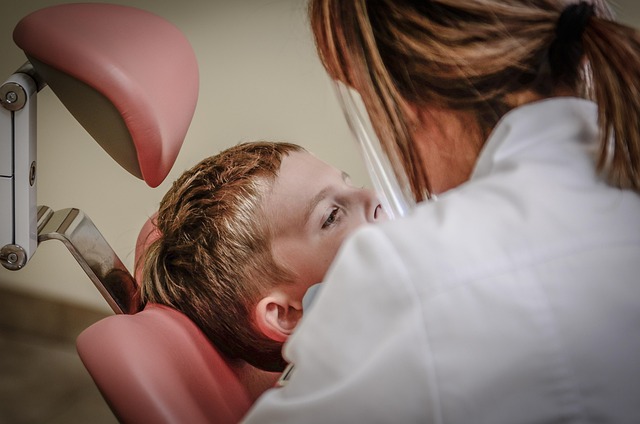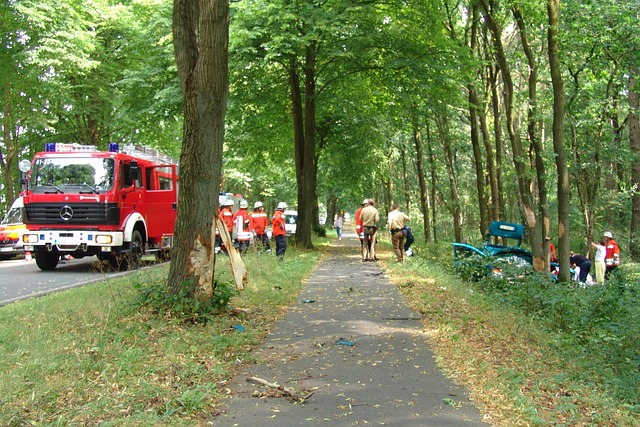Boca Raton Accident Claim: Step-by-Step Guide to Legal Proceedings

When pursuing a Boca Raton accident claim, thoroughly document the incident by gathering details, ph…….
Welcome to an in-depth exploration of the complex world of Boca Raton accident claims—a vital aspect of personal injury law with significant implications for victims, legal professionals, and insurance companies alike. In this article, we embark on a journey to decipher the intricacies of this specialized field, unraveling its historical roots, global reach, and profound impact on society. By delving into each critical component, we aim to equip readers with a comprehensive understanding of Boca Raton accident claims, their mechanisms, and their role in shaping legal landscapes worldwide.
Definition: A Boca Raton accident claim refers to a legal process through which individuals or entities seek compensation for damages incurred due to an unforeseen incident or accident within the city of Boca Raton or its jurisdiction. This claims process is governed by specific laws and regulations, ensuring that victims have a means to recover from losses caused by negligent acts.
Core Components:
Accident: The foundation of any successful claim lies in a qualifying accident. These can range from motor vehicle collisions to slips and falls, workplace injuries, or medical malpractice incidents.
Negligence: To succeed, claimants must establish that the defendant’s actions or omissions constituted negligence. Negligence is a legal concept where individuals have a duty of care, and failing to meet this standard results in liability.
Damages: Victims seek compensation for losses suffered, encompassing medical expenses, lost wages, pain and suffering, and property damage. The assessment of damages is a critical aspect, requiring detailed documentation and expert testimony.
Legal Proceedings: Following the filing of a claim, legal proceedings unfold, including pre-trial hearings, mediation, or, if unresolved, trial by jury. The outcome determines liability and the amount of compensation awarded.
Historical Context:
The concept of accident claims has evolved over centuries, with roots tracing back to ancient Roman law. However, the modern interpretation and system in place today have been shaped by various legal reforms and societal changes. In Florida, where Boca Raton is located, personal injury laws have undergone significant developments, ensuring that victims’ rights are protected while maintaining a balanced approach to liability.
International Influence:
Boca Raton accident claims do not operate in isolation; they are deeply intertwined with global legal practices and principles. International organizations, such as the United Nations and various regional bodies, have played pivotal roles in harmonizing and standardizing personal injury laws worldwide. These efforts aim to facilitate cross-border claims, ensure consistency, and protect the rights of victims who may find themselves involved in accidents while traveling or conducting international business.
Regional Trends:
| Region | Trends |
|---|---|
| North America | Strict liability rules for product defects and enhanced security standards post-pandemic have led to increased claims. |
| Europe | The EU’s focus on consumer protection has resulted in more stringent regulations, impacting claim outcomes. |
| Asia Pacific | Rapid industrialization and urbanization drive a rise in workplace accidents, leading to robust workers’ compensation systems. |
| Middle East | Strict local laws and international labor standards influence accident claims, especially in construction sectors. |
Market Dynamics:
The economic implications of Boca Raton accident claims are far-reaching. According to a study by the Florida Bar (2022), the average settlement for personal injury cases in Miami-Dade County, nearby to Boca Raton, ranged from $350,000 to $750,000, with complex cases surpassing $1 million. These figures highlight the significant financial impact on both claimants and insurance providers.
Investment Patterns:
Insurance companies heavily invest in risk assessment and loss prevention strategies to mitigate potential claims costs. In Florida, where tourism is a significant industry, insurers focus on educating visitors about local laws and safety measures to reduce accident risks.
Economic Systems and Claims:
Boca Raton accident claims are integral to the broader economic system, influencing insurance premiums, business operations, and community safety standards. Effective management of these claims can lead to more stable insurance markets and enhanced public safety initiatives.
Digitalization of Records:
Technology has revolutionized the way accident claims are handled. Digital record-keeping, including electronic medical records and digital evidence preservation, streamlines the process, improves efficiency, and reduces fraud potential.
AI and Predictive Analytics:
Artificial Intelligence (AI) applications in claim processing offer remarkable benefits. AI algorithms can analyze vast datasets to predict settlement amounts, identify patterns in successful claims, and assess risk more accurately, benefiting both insurers and claimants.
Blockchain for Transparency:
Blockchain technology has the potential to enhance transparency and security in accident claims. Smart contracts, based on blockchain, can automate claim processing, ensuring faster settlements and reducing fraudulent activities.
Legal Frameworks:
The legal landscape governing Boca Raton accident claims is robust and continually evolving. The Florida Statutes Chapter 627 outlines the rules for personal injury protection, including no-fault insurance, which sets a minimum coverage requirement for all drivers in the state. This system aims to expedite claim settlements and reduce litigation.
Key Policies:
No-Fault Insurance: As mentioned, Florida’s no-fault law encourages swift resolutions by providing a mechanism for direct compensation between insured parties without extensive litigation.
Workers’ Compensation: For workplace injuries, Florida has a comprehensive workers’ compensation system that ensures employees receive medical benefits and wage replacement while protecting employers from excessive liability.
Product Liability Laws: Strict product liability laws hold manufacturers and distributors accountable for defective products, leading to significant recalls and improved safety standards.
Legislative Changes:
Legal reforms are continually being proposed and enacted to address emerging issues. For instance, the rise of ride-sharing services has led to debates about whether drivers should be classified as independent contractors or employees for insurance and liability purposes.
Main Challenges:
Complex Medical Bills: Navigating intricate medical billing and coding systems can delay claims processing, especially when dealing with specialized treatments or rare conditions.
Underinsured/Uninsured Drivers: Dealing with drivers who have inadequate insurance coverage or none at all presents significant challenges in compensating victims fairly.
Legal Loopholes: Some critics argue that certain legal loopholes and gray areas in liability laws can hinder fair compensation for claimants.
Proposed Solutions:
Simplified Medical Record Access: Standardizing digital record-keeping and implementing secure data-sharing protocols can streamline the process, ensuring efficient access to medical information.
Enhanced Insurance Regulations: Strengthening insurance regulations, including minimum coverage requirements and stricter penalties for non-compliance, can address issues related to underinsured/uninsured drivers.
Legal Reform and Education: Ongoing legal education for both professionals and the public can help clarify complex issues, reduce misunderstandings, and promote fair practices.
Case Study 1: The Medical Malpractice Victory
A Boca Raton resident, Sarah, underwent a routine surgery at a local hospital. Due to medical negligence, she suffered severe complications, leading to prolonged hospitalization and physical therapy. Through diligent legal representation and expert testimony, her claim was successful, resulting in a settlement that covered her medical expenses, lost wages, and pain and suffering. This case demonstrated the power of advocacy in ensuring accountability for medical mistakes.
Case Study 2: Workplace Injury Compensation
John, an employee at a construction site in Boca Raton, sustained serious injuries while working on a high-rise building. His employer had comprehensive workers’ compensation insurance, and through the support of a specialized legal team, John received full benefits, including medical care, wage replacement, and vocational rehabilitation services, enabling him to regain independence.
Case Study 3: Product Liability Settlement
A local family was devastated when their child was injured due to a defective toy. The manufacturers, facing significant public scrutiny, settled the claim out of court, paying for the child’s medical expenses, therapy, and a substantial sum in damages. This case highlighted the importance of consumer protection and holding businesses accountable for product safety.
Emerging Trends:
Telemedicine and Remote Claims Processing: The post-pandemic era has accelerated the adoption of telemedicine, offering remote claim consultations and digital evidence gathering, especially in rural areas.
AI-driven Legal Research: Advanced AI tools assist legal professionals in researching case law, identifying relevant precedents, and predicting outcomes, enhancing efficiency and accuracy.
Cybersecurity in Claims Management: As more data becomes digitized, safeguarding sensitive information through robust cybersecurity measures becomes essential to prevent fraud and identity theft.
Growth Areas:
Specialized Accident Law: The rise of niche practices focusing on specific types of accidents, such as medical malpractice or truck accidents, ensures specialized knowledge and improved client outcomes.
International Cross-Border Claims: With increasing global mobility, international accident claims are expected to grow, requiring a more unified legal approach and cooperation among jurisdictions.
Strategic Considerations:
Data Analytics for Risk Assessment: Insurers can leverage data analytics to identify high-risk areas or individuals, enabling proactive safety measures and personalized risk management.
Public Safety Initiatives: Governments and community organizations can collaborate to implement safety campaigns, improve infrastructure, and reduce accident rates, ultimately lowering claims volumes.
In conclusion, Boca Raton accident claims represent a complex yet vital aspect of personal injury law, with far-reaching implications for individuals, businesses, and society at large. Understanding this intricate field involves recognizing its historical roots, global influences, economic impacts, technological advancements, and evolving policies. Through case studies and an examination of future trends, we’ve uncovered the dynamic nature of this domain.
As the legal landscape continues to evolve, so too will the practices and principles governing Boca Raton accident claims. By staying informed, adapting to technology, and fostering a culture of accountability and safety, stakeholders can ensure that victims receive fair compensation while maintaining the integrity of the justice system.
Q: What is the time limit for filing a Boca Raton accident claim?
A: In Florida, the statute of limitations for personal injury claims, including accident claims, is generally four years from the date of the incident (Florida Statutes § 95.11). However, specific circumstances may extend or reduce this timeline.
Q: How do I know if I have a valid claim?
A: Evaluating a potential claim involves several factors. A qualified lawyer can assess your case by considering the details of the accident, the extent of your injuries, and the applicable laws. They will guide you on the strength of your claim and the best course of action.
Q: Can I represent myself in a Boca Raton accident claim?
A: While it is possible to represent yourself, complex legal proceedings often benefit from the expertise of experienced attorneys. Legal professionals can navigate the intricate rules, present a compelling case, and protect your rights throughout the process.
Q: How do insurance companies determine settlement amounts?
A: Insurance companies use various factors to assess claim settlements, including the severity of injuries, medical expenses, lost wages, pain and suffering, comparative fault (if applicable), and local legal precedents. Advanced analytics help insurers make more accurate predictions.
Q: What happens if I disagree with the insurance company’s offer?
A: If you believe an insurance company’s offer is inadequate, you have options. Consult a lawyer to review your case and negotiate on your behalf or file a formal claim through the appropriate legal channels. Mediation or arbitration may be available as alternative dispute resolution methods.

When pursuing a Boca Raton accident claim, thoroughly document the incident by gathering details, ph…….

Understanding the Boca Raton accident claim process is key to navigating a complex system. After ass…….

In Boca Raton accident claims, understanding medical bills is key for ensuring adequate injury compe…….

In Boca Raton, understanding your legal rights after an accident is crucial for a successful Boca Ra…….

In Boca Raton accident claims, emotional damages, including fear, anxiety, depression, and PTSD, sig…….

Pursuing a Boca Raton accident claim requires establishing fault through evidence and witness statem…….

In Boca Raton, understanding your rights and navigating legal complexities after an accident is cruc…….